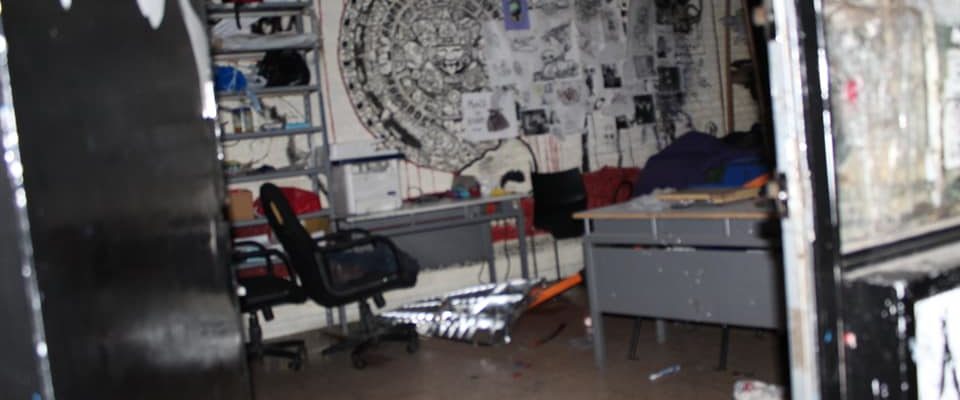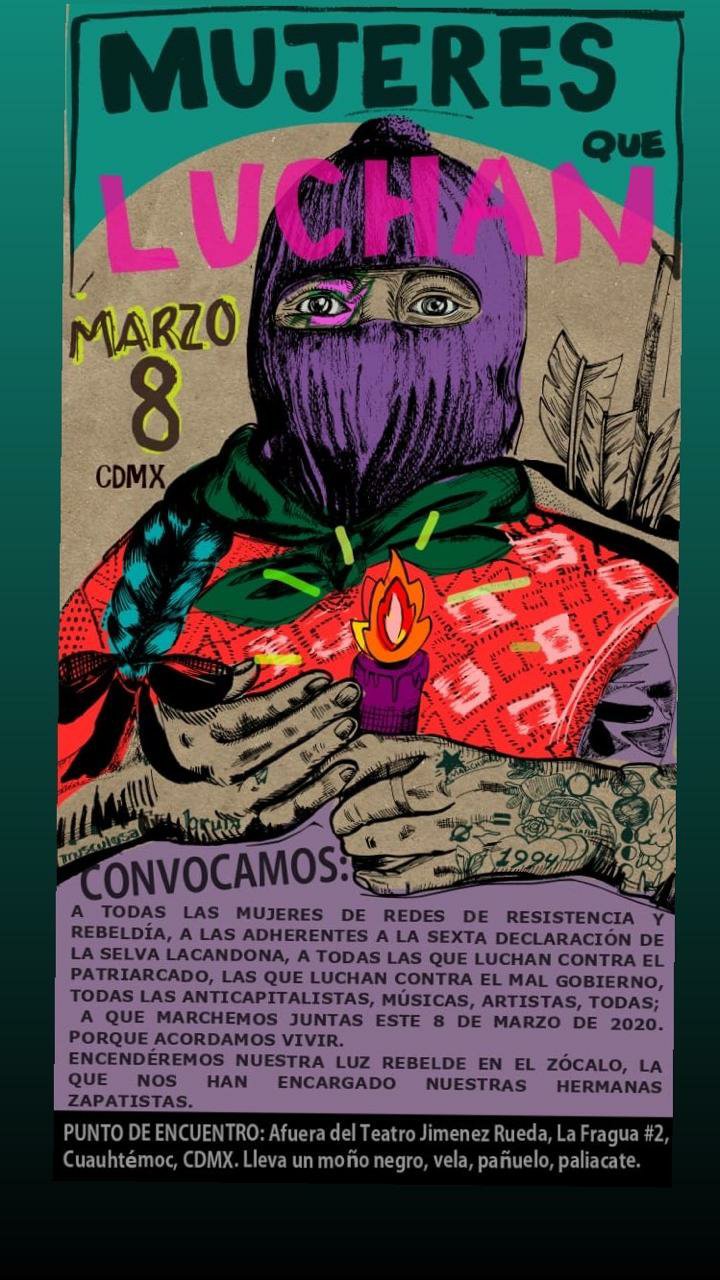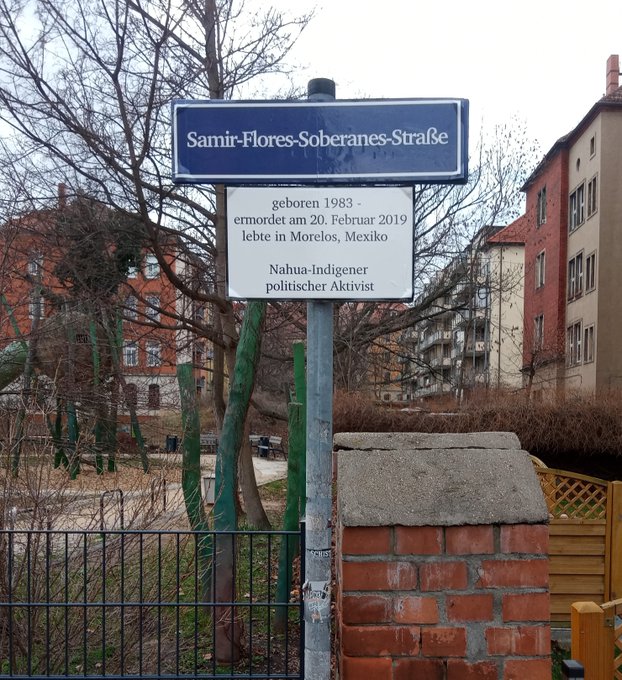
solidaridad
(Español) [Hackear la Pandemia v 1.1] Estrategias Narrativas en Tiempos del COVID-19
Descarga documento: HackearLaPandemia 1.1 – HackeoCultural
Un virus ha puesto en jaque el sistema económico-social-espiritual hegemónico. La pandemia del COVID-19 logró frenar en seco la cotidianidad de una parte del mundo, pero también puso de manifiesto el alcance de las desigualdades sociales y la enorme tendencia a la concentración de la riqueza.
Las grandes empresas eligen las ganancias por encima de la salud, los gobiernos continúan sus políticas de despojo institucional, mientras los medios de comunicación impulsan el miedo y una narrativa apocalíptica. Los sistemas de opresión quieren hacernos pagar la continuidad de su existencia con nuestras vidas.
El presente documento es parte de un ejercicio de síntesis y sistematización de las narrativas dominantes que han pasado por nuestro radar y hemos visto reproducirse en tiempos de pandemia; también están los anticuerpos, las reflexiones, discusiones y sueños con las que nos hemos cruzado en las últimas semanas. Esperamos que sirva para iniciar una reflexión colectiva: ¿qué es lo que este momento requiere de nosotres? Como narradores, cuenta cuentos, artistas, comunicadores, radialistas, periodistas, hackers culturales, tenemos una responsabilidad sumamente importante en la crisis extendida que se avecina: hacer de lo radical un sentido común, crear relatos que agrieten los muros, que abran la imaginacción para crear otros futuros posibles.
La Narrativa Hegemónica:
1. Invisibiliza las razones estructurales de la crisis. Promueve la idea de que este virus ‘no discrimina’, ‘es una amenaza para todas las personas’ del planeta y ‘es la causa’ del sufrimiento que estamos por vivir. Invisibiliza que los impactos económicos y demográficos dependen de vulnerabilidades preexistentes del sistema: el ‘desarrollo del primer mundo’ a partir de la explotación colonial, cuarenta años de políticas neoliberales, cincuenta años en donde la expansión del capital ha extinguido el 60% de la biodiversidad en el planeta, el desmantelamiento de los sistemas de salud y seguridad social, la sobrecarga de los cuidados de los enfermos en las mujeres, las enfermedades crónicas debido a un modelo industrial de alimentación, el envenenamiento del agua y el aire, la privatización del agua que tiene al 40% de la población mundial sin posibilidad siquiera de beber o lavarse las manos. En enero de este año, 2153 ricos concentran la misma riqueza que 4.600 millones de pobres (60% de la población mundial). El virus no discrimina, pero la desigualdad estructural sí. Existen artículos y estudios científicos que muestran que los virus que se diseminan en estos tiempos están directamente asociados a la destrucción de los ecosistemas, a la deforestación y al tráfico de animales silvestres para la instalación de monocultivos.
Sin embargo, la narrativa de la pandemia la muestra como enfermedad no como síntoma. Ni en los discursos de los políticos, ni en los medios de comunicación masivos se nombra la necesidad de un cambio radical en las relaciones entre las personas y con el planeta.

(Español) Información sobre el COVID-19 en lenguas indigenas de Mexico y Guatemala
https://vimeo.com/401735769
– Información sobre la prevención del COVID-19 en Me’phaa de Malinaltepec (Tlapaneco) de la Montaña de Guerrero, México.
Información sobre la prevención del COVID-19 en Me’phaa de Malinaltepec
– Información sobre el COVID-19 en Zapoteco de Santo Domingo Albarradas, Oaxaca, México.
Información sobre la prevención del COVID-19 en Zapoteco
– Información de COVID-19 en Mixteco de San Juan Mixtepec, Oaxaca, México.
nformación sobre la prevención del COVID-19 en Tu’un Savi
– Infórmacion sobre el COVID-19 en Maya Yucateco.
Infórmacion sobre el COVID-19 en Maya Yucateco
– Información sobre la prevención del COVID-19 en la lengua de la Tribu Yaqui, Sonora, México.
Información sobre la prevención del COVID-19 en Yaqui de Vicam
-Información sobre la prevención del COVID-19 en Chinanteco de Lalana, Oaxaca, México.
Información sobre la prevención del COVID-19 en Chinanteco de Lalana
– Información sobre el COVID-19 en K’anjob’al de San Miguel, Acatan, Huhuetenenango, Guatemala.
Información sobre la prevención del COVID-19 en Maya-K’anjob’al
– Información sobre COVID-19 en Maya-Akateko de San Miguel, Acatan, Huhuetenenango, Guatemala.
Información sobre la prevención del COVID-19 en Maya-Akateko







